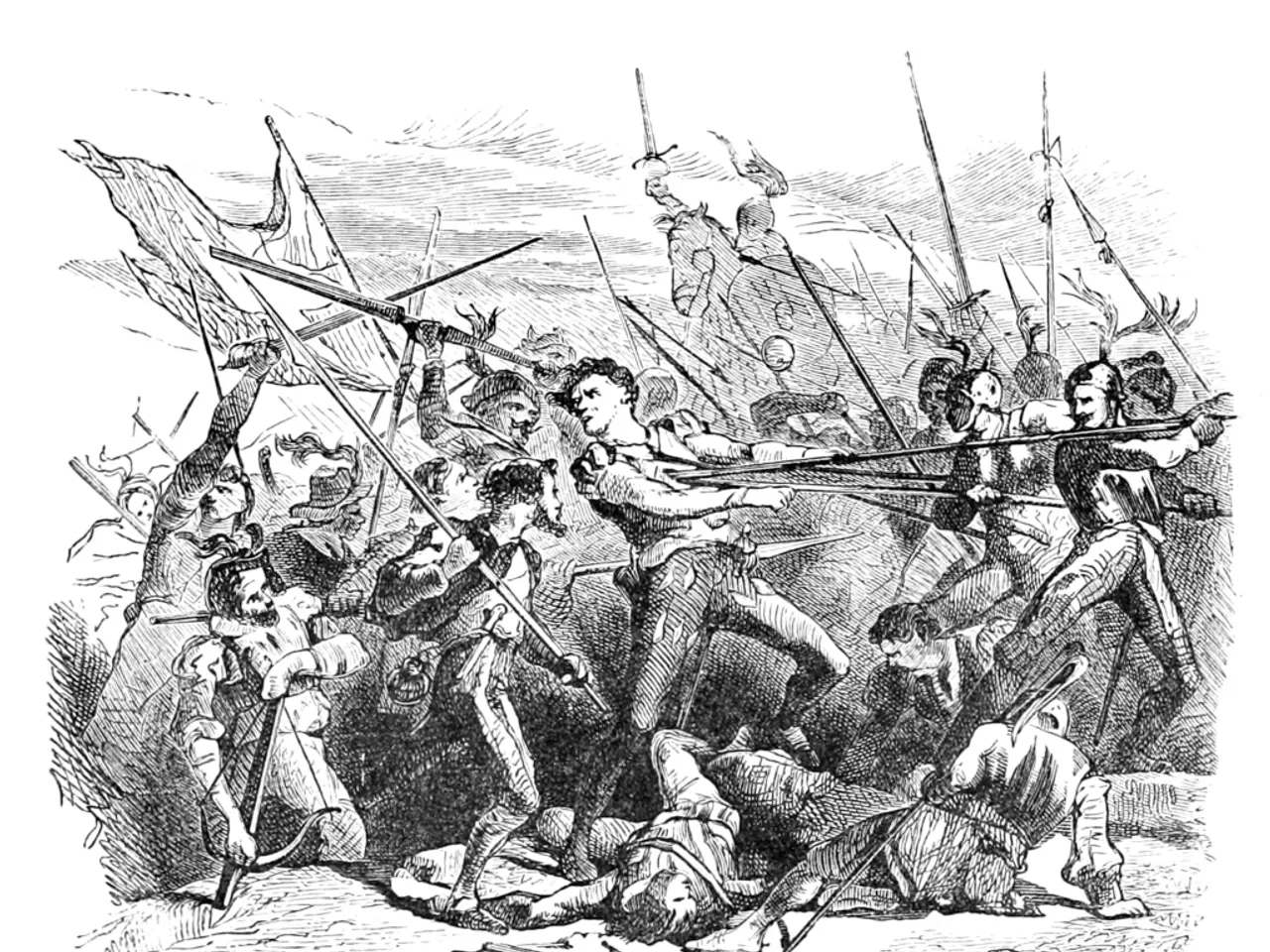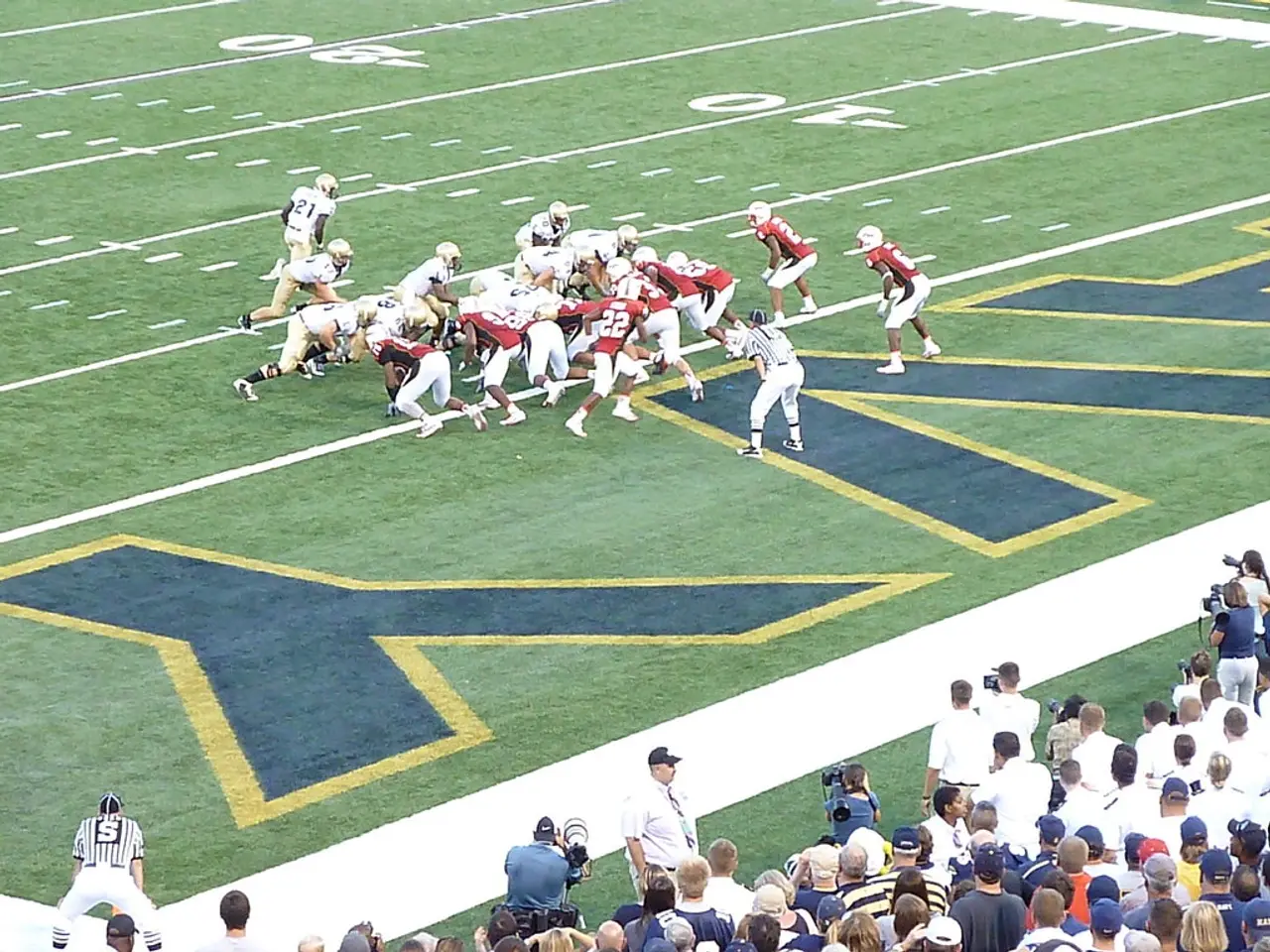Are you a supporter of Christian nationalism?
In the realm of political and religious discourse, the concept of Christian nationalism has been a topic of much debate. This ideology, which merges a particular Christian identity with national identity, has been a significant factor in shaping the political landscape, particularly in the United States.
From 2018 to 2024, Bruce Barron served as the editor of the World Evangelical Alliance's theology journal. During this period, he published an article arguing that good theology is the best antidote to Christian extremism, a piece penned shortly after the 2021 mob attack on the U.S. Capitol.
Christian nationalism advocates that the nation should be officially and culturally defined by Christian values and beliefs. In the United States, Christian nationalists argue that America is a Christian nation, divinely chosen and superior to others, and that only Christians are the country's "true Americans." They support policies and social norms that reflect Christian cultural conservatism, and they seek to restore or reinforce Christianity's dominant role in government and society.
The extent of Christian nationalism often includes overlapping beliefs and movements such as Christian fundamentalism, Christian supremacy, and dominionism. It has historical and contemporary links to right-wing militia movements and is known to motivate efforts to enact laws that align with their interpretation of Christian doctrine, such as banning abortion at a governmental level. Proponents reject secularism in government, advocating that the state must explicitly accept or reject God rather than remain neutral, with some even supporting the establishment of official state religions and barring non-Christians from holding office.
However, it's important to note that Christian nationalism differs from the beliefs of many other Christians. For instance, Christian democracy emphasizes applying Christian social teaching to politics, advocacy of human rights, community duties, subsidiarity, and sphere sovereignty without insisting on government endorsement of Christianity or exclusion of non-Christian citizens from political participation. They tend to promote coexistence with secularism and pluralism rather than seeking a theocratic or exclusivist state.
Recent surveys suggest that the prevalence of Christian nationalism in the United States is substantial. Last year, a survey claimed that 64% of white U.S. evangelicals are committed to or sympathetic to Christian nationalism. However, the author of this article believes that four out of five questions in the survey did not clearly distinguish "Christian nationalists" from other Christians.
The impact of Christian nationalism extends beyond the United States. For instance, Jair Bolsonaro, the former president of Brazil, has been associated with Christian nationalism. Similarly, the Pew Research Center has found that the two countries with the most popular religious nationalism are Kenya (32% of the population) and the Philippines (21%).
The author expresses concern about the use of the term "Christian nationalism" to demonize ordinary Christians. The phrase is commonly used to criticize certain Christians, which the author believes adds to polarization and hostility. Bruce Barron considers Christian nationalism a form of idolatry.
Bruce Barron is the author or coauthor of seven books on religion and politics and was a former US congressional aide. His blog can be subscribed to at brucebarron.substack.com. The author has written on Christian views of government for a long time and has been associated with dominion theology.
Politico and The Guardian have discussed the impact of Christian nationalism on Trump administration policies, highlighting its influence on various decisions and initiatives. The survey's methodology, according to Bruce Barron, does a severe disservice to millions of Christians who serve their communities humbly and faithfully.
In summary, Christian nationalism is a complex ideology that seeks to make the nation explicitly Christian in identity and law, often rejecting secular governance. While it has been associated with certain political movements and policies, it's important to understand that not all Christians subscribe to this ideology, and the term "Christian nationalism" should be used with care to avoid unfairly stereotyping or demonizing ordinary Christians.
- The World Evangelical Alliance's theology journal, under Bruce Barron's editorship from 2018 to 2024, published an article arguing that good theology can combat Christian extremism, including the ideology of Christian nationalism.
- Politico and The Guardian have critically discussed the influence of Christian nationalism on Trump administration policies, emphasizing its role in shaping various decisions and initiatives.







